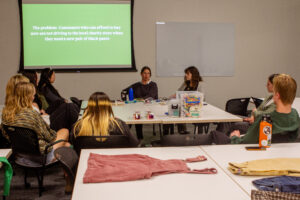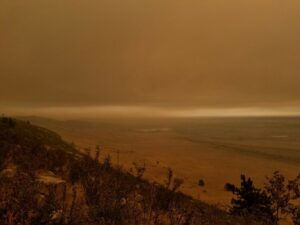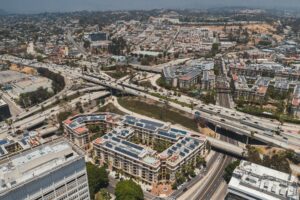Guest Post by Débora Nunes, 2022-2023 Sustainability Leadership Fellow, and Ph.D. Student in the Department of Economics at Colorado State University
A few summers ago, in December—that’s summertime in my home country of Brazil—I was going through some old boxes and found a little questionnaire that I answered in fourth grade. My favorite school subjects were mathematics and theatre, my extracurricular activities were classical ballet and volleyball, and my dream was to become a taxi driver, a soccer referee, or a veterinarian. I refused to answer the “either or” questions, declaring to love both the beach and the mountains, sweet and savory, dogs and cats. From a young age, I was dissuaded from becoming an academic researcher: too many passions, too little discipline, too much energy.
But I was a great student and an avid learner, and the Montessori school that mom chose for my brother and I allowed us to pursue our curiosity in all subjects. I loved mathematics, my brother loved history, we both loved geography and music. But when high school came and we had to change schools, I was faced with an exam for the first time in my life. My knowledge was measured in numbers, I wasn’t allowed to change seats during the day (actually, I was forced to sit in the same chair for an entire month!), and people laughed at my ignorance about how “normal schools” work.
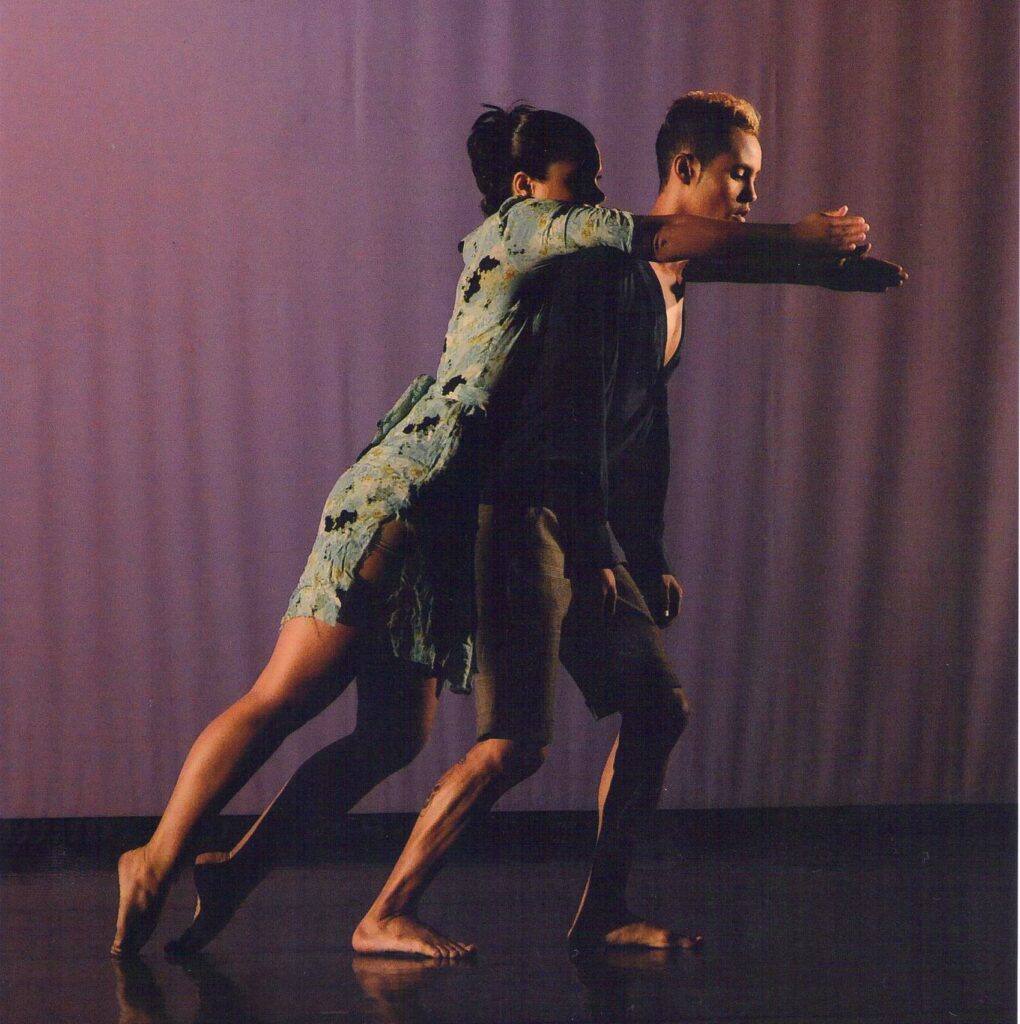
Despite the great effort by “normal schooling” to diminish my curiosity, I decided to pursue a Bachelor’s degree in economics. It seemed like a great mix of the subjects I loved: mathematics, politics, history, and geography. Juggling my career as a dancer on the side, the reality of the world seemed disconnected from what we were learning in the classroom, so I soon became an activist in the Diretório Acadêmico (a student union that, by law, has voice and vote in several councils within federal universities in Brazil, including for the election of the university President).
My curiosity—aligned with good grades, the mainstream metric of knowledge—allowed me to win a fully funded scholarship to do part of my undergraduate in Mexico. There, I met Professor Stefanía Vela Barba, who taught Sexual and Reproductive Rights. For the first time, I saw research&political-involvement&passion&personal-experience&energy&knowledge-from-the-body&chaos all at the same time in a university classroom. My experiences taught me an important lesson: academia can be a turf of privilege and tradition, but also a space for free thinkers to develop frontier research. Research can engage with the real world and the pressing issues of humanity and other creatures. Our love can inform our research and can often be more important than having rigorous discipline. Loving a plethora of subjects can give us a unique perspective, allowing us to make connections among things and peoples that are not yet established, studied, or understood. Engagement, after all, can be a necessary step to bring academic knowledge outside of the universities walls.
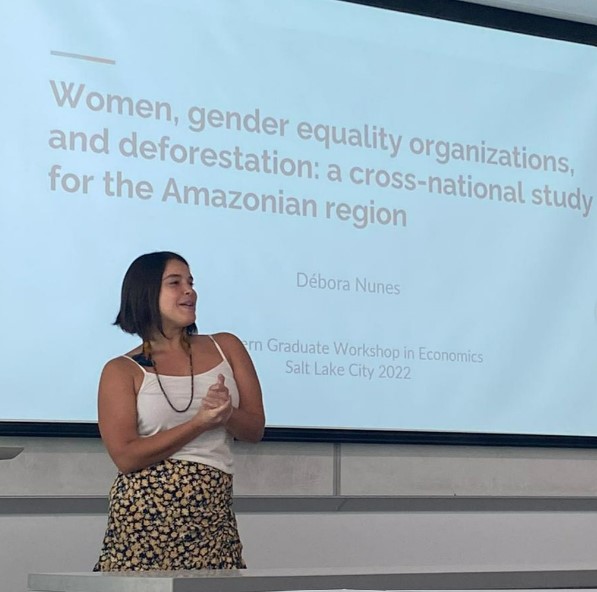
Being raised by a single mother in the south of Brazil heavily influenced my research in economics, which is focused on the gendered impacts of economic development. Backpacking in Peru, Bolivia, and Brazil and camping with a Zapatista community in Mexico made me realize the unique impacts that lack of natural resources brings for women—they are the ones who take care of others when mosquito-transmitted diseases spread, who improvise when food is scarce, who walk long distances to collect fire wood and other burning fuels to keep people fed and warm, who search and collect natural elements to produce arts and crafts with their own hands. My current research, focused on the impacts of deforestation for women in the Amazonia Region, is a direct result of the places I’ve been, the roads I’ve walked, and the pain and love I’ve felt. To acknowledge that is to be strongly objective: everyone knows where I come from and why I’m interested in this subject. To pretend I have no engagement with my object of study is not only to hide important information, but to perpetuate a cold and extremely limited perspective on how to conduct good research.
Sharing your background and passions when doing research is nothing new; in my field, feminist economists have been talking about that for at least five decades (FOOTNOTE: Julie Nelson’s Feminism and Economics, published in the Journal of Economics Perspectives in 1995, provides a great summary of that discussion in a very accessible language. Such paper is a required reading in the undergraduate course I teach at CSU, Gender in the Economy). But there is still some pushback when trying to put those ideas in practice. Either due to bias, fear of bias, or lack of time, academics are often more interested in discussing what they research than why they research. Creating informal spaces to foster these discussions among scholars could be a good first step, and a post in a blog written by a community of interdisciplinary scholars who focus their research in the very love-driven field of global sustainability feels like a great start.

